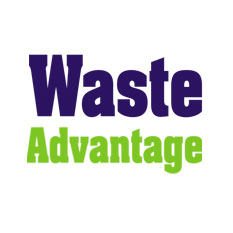Lawmakers Propose Radical Legislation to Address Global Plastic Waste
Waste & Recycling | 2019-11-11 07:02:45
U.S. Senator Tom Udall (D-N.M.) and U.S. Representative Alan Lowenthal (D-Calif) are circulating a discussion draft of legislation to tackle plastic waste.
SEATTLE (Waste Advantage): U.S. Senator Tom Udall (D-N.M.) and U.S. Representative Alan Lowenthal (D-Calif) are circulating a discussion draft of legislation to tackle plastic waste. “The sheer volume of plastic pollution that is inundating our communities, our waterways, and even our bodies is nothing short of a crisis,” says Udall. “Our children are already bearing the cleanup costs of a generation of single-use plastic that is clogging our rivers and is infiltrating our food chain. Cities and states across the country, including in my home state of New Mexico, are already taking action to reduce this plastic footprint before it’s too late. But we need a bold, national strategy to tackle plastic pollution. This bill would call on all of us, from companies to communities, to address this crisis head-on.”
The legislation outline is as follows:
1. Require plastic producers to take responsibility for collecting and recycling materials: Producers currently relying on plastic and other covered materials to deliver their products to the market will be required to design, manage, and finance programs to process any waste that would normally land in the natural environment. The legislation will encourage producers to cooperate with those who produce similar products to take responsibility for their waste and implement cleanup programs with Environmental Protection Agency approval. Producers will cover the costs of waste management and cleanup, as well as awareness raising measures for covered materials, which includes packaging and consumer paper products, regardless of the recyclability, compostability, and type of material; printed paper; bio-based products; tobacco products, including filtered cigarettes; and fishing gear.
2. Require nationwide container deposits: The legislation will institute a 10-cent national deposit requirement for all beverage containers, regardless of material, to be refunded to customers when they return containers. Any unclaimed refunds will go to beverage producers to offset investments in nationwide collection and recycling infrastructure. This legislation encourages states that have already implemented similar initiatives to continue their current systems if they match the federal requirements.
3. Ban certain pollutant products: Beginning in January 2022, the most common single-use plastic products that pollute our environment will be banned from sale and distribution. The ban will apply to lightweight plastic carryout bags, food and drinkware from expanded polystyrene, cutlery, plates, straws, drink stirrers, and cotton buds, with exceptions for persons with disabilities.
4. Carryout bag fee: The legislation would impose a fee on the distribution of non-reusable carryout bags, which would fund litter cleanup and recycling infrastructure.
5. New minimum recycled content requirement: Containers will be required to include an increasing percentage of recycled content in their manufacture before entering the market.
6. Protect existing state action: The bill would protect state and local governments to enact more stringent standards, requirements, and additional product bans.
7. Moratorium on new plastic facilities: The legislation will give environmental agencies the time needed to investigate the cumulative impacts of new plastic-producing facilities on the air, water, and climate. The legislation would also update EPA regulations to reduce factory-produced plastic contamination in waterways and direct the EPA to update existing Clean Air and Clean Water Act emissions standards to ensure that plastic-producing facilities integrate the latest technology to prevent further pollution.
Courtesy: www.wasteadvantage.com
 By
By 